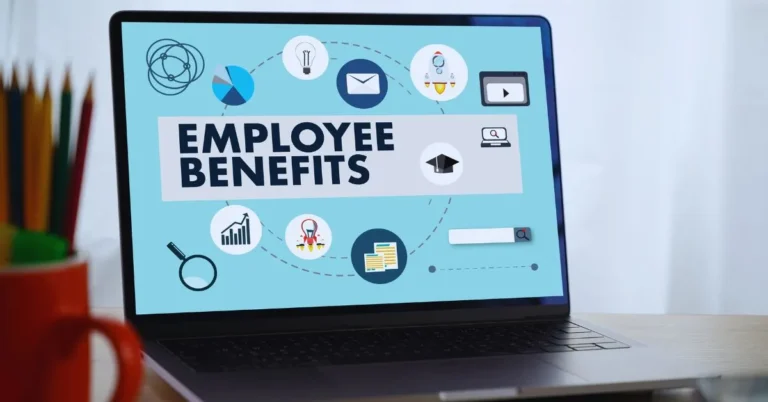Understanding Spanish for Business Success
Do you speak Spanish? Learning even the fundamentals of Spanish can open doors for business and cultural exchange. Spanish isn’t just a language; it’s a key to connecting with diverse markets. It’s not confined to one country; it’s the official language in 20 nations. Surprisingly, Spanish isn’t just spoken in Spain; there are more Spanish speakers in the United States than in Spain itself.
Spanish: The Go-To Second Language
Out of the 6,000 languages spoken worldwide, few can match the immediate practicality of Spanish in your workplace. Especially in the United States, where the Hispanic population is concentrated in key regions like Texas, California, and Florida, knowing Spanish can be a game-changer. For instance, in the Tampa Bay area and metro Orlando alone, around 18 percent of residents are native Spanish speakers.
What’s even more compelling is the projection by the U.S. Census Bureau that the Hispanic/Latino population will double in the next thirty years. With such a significant demographic shift underway, speaking the same language as your customers, colleagues, and competitors becomes not just beneficial, but essential for success. After all, why not bridge the linguistic gap and connect more effectively with those who matter most in your business environment?
Gaining a Competitive Edge through Spanish Communication
In many parts of the world, speaking more than one language is as natural as breathing. For example, in Europe, a staggering 56 percent of people are bilingual, compared to just 20 percent of Americans. But why does this matter? Well, the ability to converse with clients, suppliers, and buyers from around the globe can often be the deciding factor between your company sealing a deal or losing it to a competitor that’s more adept at navigating language barriers.
You see, negotiations conducted in just one language can have a surprisingly high failure rate. According to the American Council on Teaching of Foreign Languages, a quarter of U.S. employers have actually missed out on business opportunities due to a lack of language skills.
Now, here’s where Spanish comes into play. Not only is it a strategic asset that’s becoming increasingly crucial as the international business landscape shifts away from English dominance, but it also vastly improves your customer service for a rapidly growing segment of your clientele. In certain professions, like pharmacy, being able to communicate in Spanish about medications, potential side effects, insurance matters, and prescription refills can literally be a matter of life and death for your customers. So, mastering Spanish isn’t just about gaining a competitive edge in business; it’s about ensuring the well-being of those you serve.
Learning Spanish Can Boost Your Brainpower
The advantages of picking up Spanish extend far beyond just mastering a new language—they actually reach deep into your brain, down to a specific area called the parietal lobe. This part of your brain is where you process language and expand your vocabulary. Interestingly, studies have shown that individuals who speak more than one language tend to have more gray matter in this region, which suggests a heightened capacity for language acquisition and processing.
But that’s not all. Being bilingual can also enhance your cognitive abilities in other areas. Scientists have discovered that bilingual individuals often demonstrate greater creativity and improved multitasking skills compared to their monolingual counterparts. And here’s the kicker: bilingualism fosters cognitive flexibility, the ability to adapt swiftly to unexpected situations.
So, when it comes to both your professional and personal life, learning Spanish isn’t just about acquiring a new skill; it’s about enriching your brain and equipping yourself with the mental agility to thrive in an ever-changing world.
Practicing Spanish Sharpens Your Listening Abilities
When you’re really focusing on learning Spanish, like practicing phrases, words, grammar, and understanding the culture, you start to listen more carefully. Paying close attention like this helps you not only understand Spanish better but also makes you better at listening in general.
Why is this important? Well, being good at listening is super helpful in lots of jobs. Whether you work in psychology, teaching, medicine, sales, helping customers, or human resources, being able to really listen to people is key. It helps you understand what people need, care about their problems, and find ways to help them. So, by getting better at listening through learning Spanish, you’re not just getting good at a new language; you’re also getting better at something that can help you a lot in your job. For example, if you’re a Spanish language tutor, improving your listening skills can make you better at understanding your students’ struggles and helping them learn effectively.
Speaking Spanish Strengthens Business Bonds

The purchasing power of Spanish-speaking consumers is on the rise, and with it, the growth of Hispanic-owned businesses is soaring. In fact, these businesses are expanding at double the rate of other firms in the United States. As this market expands, it becomes increasingly vital to possess the language skills necessary to engage with it effectively. Spanish is quickly becoming the language of choice for economic collaboration in this burgeoning market.
By learning Spanish, you position yourself to cultivate enduring relationships with your customers, suppliers, and partners, many of whom are likely native Spanish speakers. This ability to communicate directly in their language fosters trust and understanding, laying the groundwork for mutually beneficial business partnerships.
Furthermore, developing an understanding and appreciation for Spanish culture, as well as the unique ways in which your Spanish-speaking colleagues and clients conduct business, can naturally broaden your professional network. It opens doors to new opportunities and enriches your personal and professional experiences by allowing you to connect with individuals from diverse backgrounds whom you may not have otherwise had the chance to engage with. In essence, speaking Spanish not only strengthens your business relationships but also enhances your overall worldview, offering countless avenues for meaningful connections both in the workplace and beyond.
Spanish Skills: A Valuable Asset in Your Job Search
Embarking on language learning doesn’t instantly turn you into a fluent speaker, ready to dazzle on your resume. However, it does signal something crucial to potential employers: your commitment to personal and professional growth. By investing time and effort into learning Spanish, you demonstrate to recruiters that you’re proactive, adaptable, and eager to embrace diversity in the workplace—qualities that are highly sought after by employers.
It’s worth noting that while fluency may not be immediate, even acquiring basic conversational skills can make a significant difference in your job search. Many companies value employees who possess field-specific vocabulary and the ability to handle common workplace scenarios in Spanish. For example, in roles like human resources, being able to communicate effectively in Spanish is essential for tasks such as scheduling appointments, conducting interviews, and providing safety instructions to applicants and new hires. Simply being able to speak a few key phrases can set you apart from other candidates and increase your chances of securing your next job opportunity. So, whether you’re just starting out or looking to advance in your career, investing in Spanish language skills can give you a distinct advantage in the competitive job market.
Spanish: A Language That’s Within Reach
You might be pleasantly surprised to learn that mastering the basics of Spanish doesn’t require years of intensive study. According to the U.S. Foreign Service Institute, achieving working proficiency in a second language typically takes anywhere from 480 to 2,200 hours. But here’s the good news: you’re not aiming to become a diplomat. You’re simply aiming to grasp the essential business aspects of Spanish, which happens to be classified as a Category 1 language by the FSI. This classification means that Spanish is among the easiest languages for English speakers to learn.
What makes Spanish so accessible? For starters, there’s no need to learn a whole new alphabet—everything is written using familiar letters. Plus, Spanish is phonetic, meaning words are pronounced just as they are written. The grammar, too, tends to follow clear and logical rules, making it relatively straightforward to pick up.
But wait, there’s more! Spanish is chock-full of cognates—words that are strikingly similar in both English and Spanish, like “perfecto.” And with the abundance of telenovelas on TV, as well as native Spanish-speaking coworkers and neighbors, you’ll find ample opportunities to practice your vocabulary, verbs, and idiomatic expressions.
Of course, it’s worth noting that Spanish does have its challenges, one being its rapid pace of speech. In fact, only Japanese rivals Spanish in terms of speed. However, with dedication and practice, even this hurdle can be overcome. So, if you’re considering learning a new language, why not start with Spanish? It’s a journey that’s not only achievable but also immensely rewarding.
Boost Your Earnings with Spanish Proficiency
In today’s globalized workforce, bilingualism is increasingly valued by employers. If your company places a high value on bilingual communication, having a solid grasp of the business basics in Spanish could potentially lead to a salary bump. In fact, committing to further study and practice could even result in fluency that could earn you up to 10 percent more in salary—an average increase seen among bilingual employees.
To unlock this financial benefit, you’d typically need to demonstrate your Spanish proficiency by obtaining certification through an internationally recognized language proficiency exam. This is particularly crucial for roles that require bilingual skills or positions within multilingual companies operating internationally. However, for many professionals, completing a language immersion course can serve as a testament to your ability to effectively communicate in Spanish within a business setting.
So, if you’re looking to give your earnings a boost and enhance your career prospects, investing in Spanish proficiency could be a smart move. Not only does it open up new opportunities for advancement, but it also demonstrates your dedication to personal and professional growth in an increasingly diverse and interconnected world.







